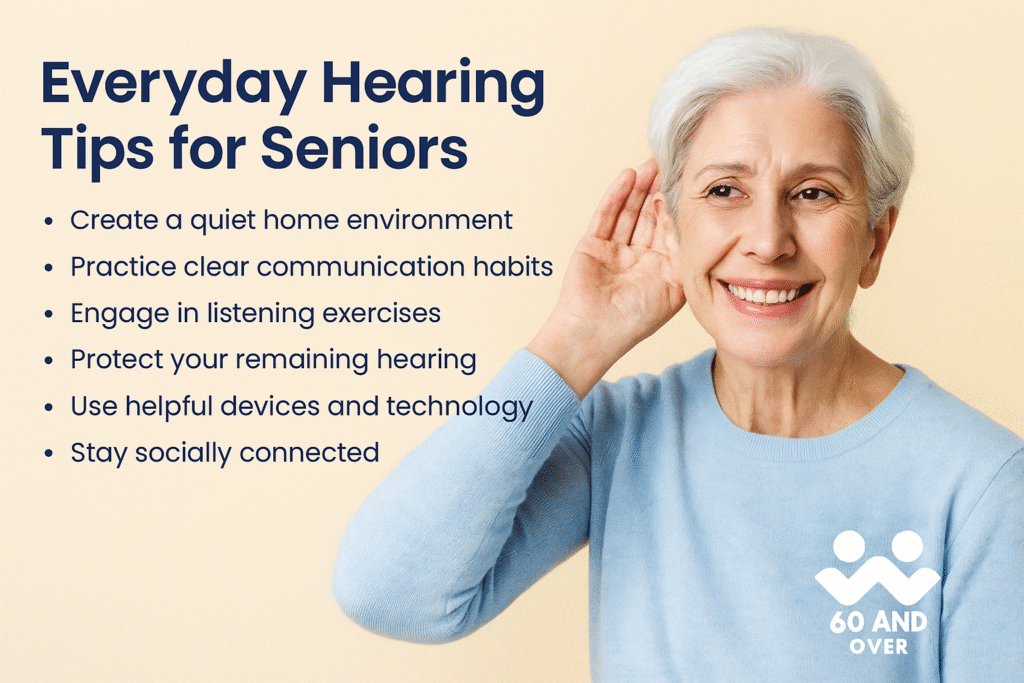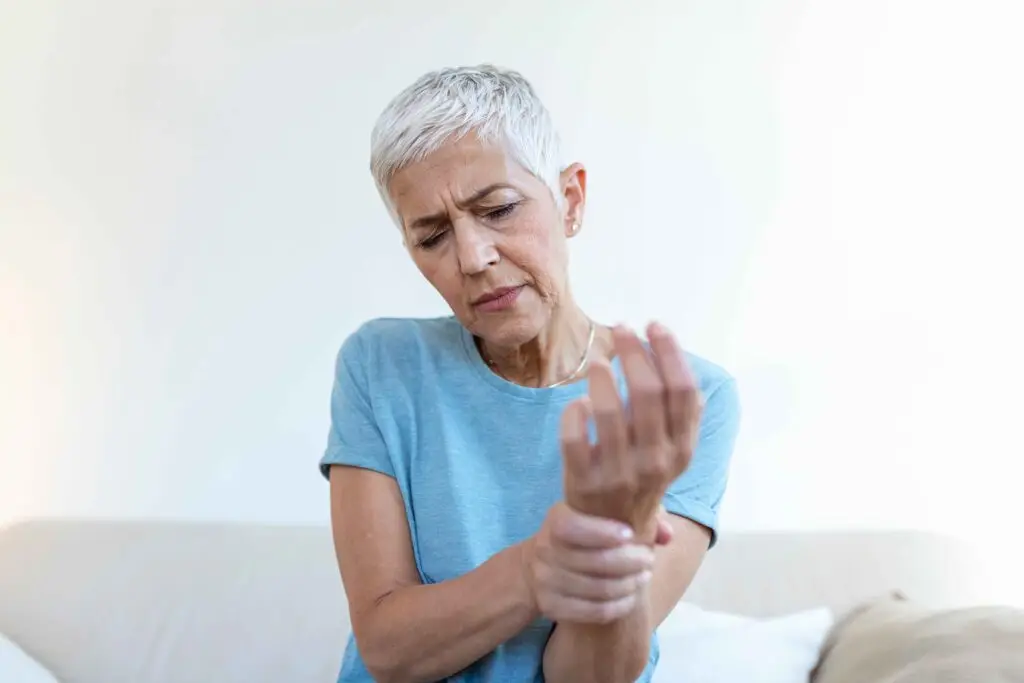Why Everyday Hearing Care Matters?
Hearing challenges don’t just affect your ears — they affect your confidence, relationships, and overall independence. Many seniors hesitate to bring up hearing difficulties, thinking it’s just “part of getting older.” But everyday strategies can make conversations easier, reduce frustration, and keep you socially connected.
1. Create a Senior-Friendly Home Environment
Small changes in the home can reduce strain and make hearing easier.
- Turn down background noise when talking — switch off TVs, radios, or appliances.
- Choose quiet spaces for important conversations.
- Add soft furnishings like curtains and rugs, which reduce echo and background noise.
2. Use Clear Communication Habits
Good communication helps both the listener and the speaker.
- Ask family and friends to face you when speaking.
- Encourage slower, clearer speech without shouting.
- Rephrase rather than repeat — sometimes different words are easier to catch.
3. Practice Everyday Hearing Skills
Just like muscles, hearing and communication benefit from practice.
- Try listening exercises such as repeating short sentences you hear in TV programs or radio shows.
- Join a small social group or community class to stay engaged.
- Keep conversations short and focused when you feel tired.
4. Protect the Hearing You Have
It’s never too late to protect your remaining hearing.
- Wear ear protection around lawnmowers, power tools, or concerts.
- Limit exposure to headphones at high volumes.
- Schedule a hearing check every year, even if you already use hearing aids.
5. Leverage Everyday Technology
Technology can make communication smoother.
- Use captioning features on TVs, phones, and video calls.
- Consider amplified telephones and senior-friendly mobile apps.
- Keep your hearing aids properly cleaned and charged, if you use them.
6. Stay Socially Connected
Isolation can worsen hearing problems by reducing practice and confidence.
- Spend time with friends and family in small groups.
- Join a local senior center or hobby group.
- Let others know about your hearing challenges so they can help make communication easier.
When to Seek Professional Help
Everyday strategies are powerful, but some situations require medical attention:
- Sudden hearing loss or ringing in the ears.
- Ongoing dizziness or balance problems.
- Hearing aids that no longer feel effective.
In these cases, schedule an appointment with an audiologist or ear, nose, and throat (ENT) specialist.
Keep Learning About Hearing Health
Good hearing care is about more than daily habits. If you’re ready to go deeper, explore these helpful guides:
👉 Hearing Aids & Devices: What Seniors Should Know – Learn about the different types of hearing aids, how they work, and tips for choosing the right one.
👉 Why Seniors Should See an Audiologist Before Hearing Aids – Discover why a professional hearing evaluation is the first step to better communication and long-term hearing health.





